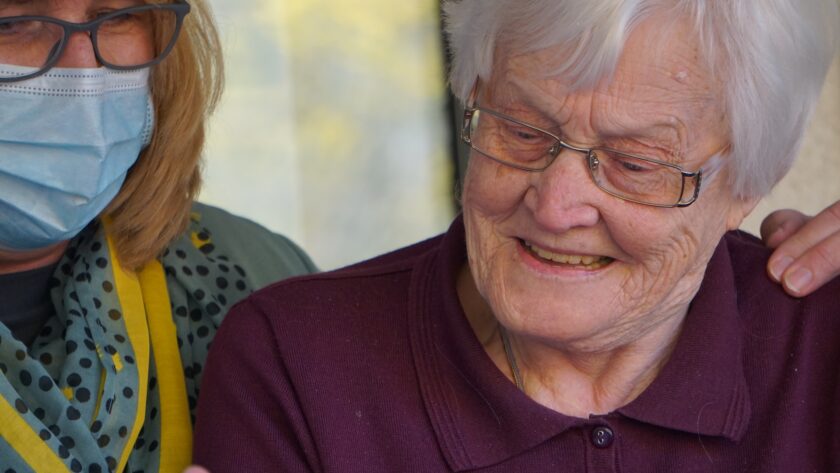Over the years, nursing homes have gotten bad reputations for neglecting and even abusing patients in their care. This may or may not be the reason why most senior citizens (those aged 65 and older) all over the state of Illinois and the entire United States prefer to remain in their own homes as they age. This is known as “aging in place”, and seniors can successfully age in place safely and comfortably if they follow these three tips.
#1: Eat Healthy
Eating a balanced and nutritious diet is essential at any age, but it becomes even more important as we get older. As we go through life, we’re more prone to age-related illnesses such as hypertension (high blood pressure), high cholesterol, type 2 diabetes, heart disease in general, osteoporosis, and certain cancers— all of which can shorten the lifespan and/or affect mobility.
We generally need fewer calories as we age, but we still need to have a diet full of nutrients, and this can get tricky. The best way to achieve this is to avoid foods that are calorie-dense and low in nutrients (i.e., potato chips, candy, soda, and alcohol) and instead eat foods that are nutrient-dense but don’t have extra calories (e.g., vegetables, fruit, whole grains, seafood, poultry, beans, etc.).
In addition to eating healthy, it’s also important to remember to stay hydrated. Dehydration is more common during this time because we tend to lose our sense of thirst as we age. Also, taking certain medications can contribute to dehydration, so it’s important to drink plenty of fluids throughout the day— especially water. The good news is that fruits and vegetables like watermelon, broccoli, peaches, celery, strawberries, and bell peppers are high in water and can help with hydration.
#2: Keep Your Mind Active
Studies have shown that keeping your mind active in later life can reduce the risk of developing Alzheimer’s disease and other forms of dementia. This is one of the main reasons that seniors in Chicago and all over the nation are placed in nursing homes. Of course, not all forms of dementia can be prevented, but exercising your brain in later life may help prolong the onset of dementia. This is essential because it’s usually the patients with dementia who end up being neglected, abused, and wandering away from nursing homes in Chicago.
Some of the best activities to take up that help keep your mind active include:
- Learning a new language (French, Spanish, Italian, Norwegian, and Swedish tend to be some of the easiest for English speakers)
- Scul[pture, painting, ceramics, drawing, and other creative outlets
- Taking music lessons online or in person (the keyboard, guitar, drums, and harmonica are some of the easiest instruments to learn)
- Writing or online blogging
It’s also a good idea to play brain games, such as crossword puzzles. Jigsaw puzzles are also good for exercising the mind. Any activity that gets you thinking or requires you to get creative is a great way to keep your mind active.
#3: Stay Physically Active
While you’re staying mentally active, don’t forget to stay physically active as well. Like eating healthy, staying physically active is important in later life to reduce the risk of all of those age-related physical diseases, as well as dementia. Just keep in mind that physical activity in later life may not look the same as physical activity in other stages of life. Yes, some senior citizens can continue weightlifting if approved by their doctors, but generally, seniors should stick to activities such as:
- Aerobics
- Dancing
- Fishing
- Gardening
- Swimming
- Tennis, golf, and other low-impact sports
- Walking
- Yoga and pilates
Fishing and gardening provide light physical activity, as well as allow you to prepare your own nutrient-dense foods, as opposed to buying them from the store. Also, the city of Chicago has great opportunities for seniors to get out and get physically (and socially) active, which include visiting museums, going to the Chicago Botanic Gardens, joining a local senior center, and many more activities.
Eating healthy, keeping your mind active, and staying physically (and socially) active will all greatly increase your chances of being able to age in place, versus being placed in a nursing home.
Another option for senior living includes moving into a retirement community. These communities have apartment-style or condo-style homes and admit adults aged 55 and older. Most are independent living communities, while others may offer assisted living as needed. Overall, you should do what’s best for you/your aging loved one when it comes to living options.




